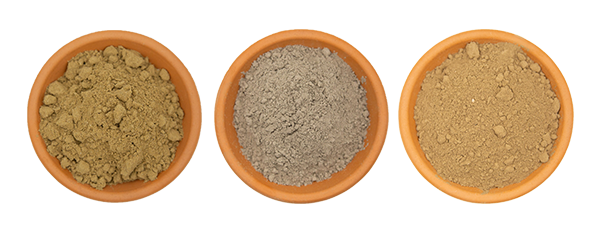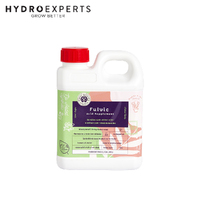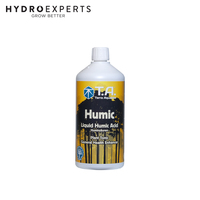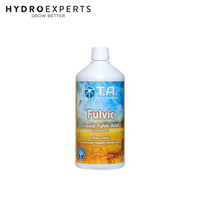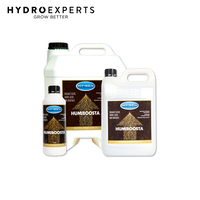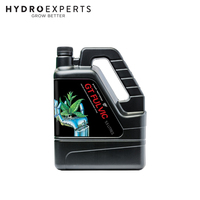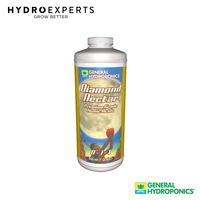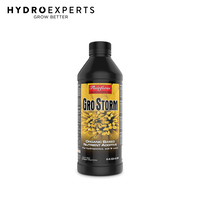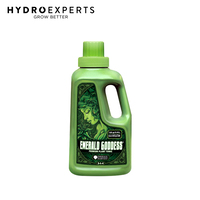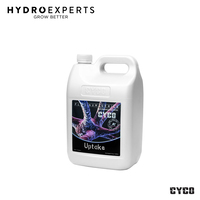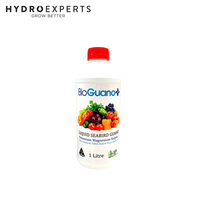Fulvic and humic acids are essential organic plant nutrients for gardeners and indoor growers. Derived from natural sources like leonardite and lignite, these substances contain minerals, vitamins, and micronutrients that boost plant growth and health. Humic acid acts as a catalyst that improves nutrient uptake and helps plants absorb more water and nutrients. Fulvic acid penetrates plant cells more easily, aids in photosynthesis, promotes root growth, and strengthens cell walls for stronger plants.
When used together, fulvic and humic acids can dramatically improve plant yield and quality for organic growers. Terra Aquatica Humic and Fulvic provide a concentrated blend of both acids in a liquid form that's easy to apply. GT Fulvic and Flairform GroStorm also offer high-quality humic and fulvic acid products for indoor gardeners. These organic supplements offer a wealth of benefits including promoting stronger stems and leaves, boosting disease resistance, stimulating blooming and fruiting, and intensifying colour and fragrance.
Fulvic and humic acids work by activating dormant root systems, activating soil enzymes, and chelating micronutrients to make them available to plants. Indoor growers will find that supplementing their garden's nutrient regime with fulvic and humic acids results in greener, healthier plants with larger yields and superior quality. These organic plant boosters are must-have products for any indoor gardener seeking to maximize their plants' potential.
Fulvic Acid FAQs
Q: What is Fulvic Acid?
A: Fulvic acid is a natural compound derived from decomposed organic matter such as plants and humus-rich soils. It has remarkable properties that benefit plant health, promoting vigor and vitality.
Q: How does Fulvic Acid affect Root Structures?
A: Fulvic acid significantly improves the root zone environment, promoting growth and enabling roots to access more soil areas for water and nutrients. It also strengthens weak roots to grow deeper.
Q: How does Fulvic Acid influence Seed Germination?
A: Adding fulvic acid accelerates germination by softening seed coats and activating enzymes, giving seeds the energy to germinate faster and stronger for an early start.
Q: How does Fulvic Acid enhance Photosynthesis?
A: Fulvic acid enhances chlorophyll production, allowing plants to absorb more sunlight and convert it into biomass and energy through photosynthesis, promoting lush, vibrant growth.
Q: How does Fulvic Acid improve Water Absorption?
A: Fulvic acid acts as a soil conditioner, improving moisture retention and helping plants stay hydrated during dry periods. It reduces stress and prevents excess runoff to conserve water resources.
Q: Should You Use Fulvic Acid?
A: Yes. Like humic acid, fulvic acid enhances nutrient uptake for stronger, healthier, more vibrant growth. It promotes deep, extensive root systems, accelerates germination, and increases plants' resilience to weather extremes and stressors.
Fulvic Humic FAQs
Q: What is the origin of humic acid?
A: Humic acid originates from the concentrated and compressed organic decay of plants and animals over time. The acids are formed through chemical and biological humification processes, involving the breakdown of plant and animal matter by microorganisms thriving on decay.
- Originates from concentrated organic decay.
- Formed through chemical and biological humification.
- Microorganisms play a crucial role in its formation.
Q: How does humic acid improve nutrient uptake in plants?
A: Humic acid enhances nutrient uptake by forming bonds with positively charged nutrients like phosphorus, magnesium, and calcium. This allows plants to absorb these nutrients more efficiently through their root systems. In soil applications, humic acid acts as a negatively charged ion, attracting positive ions and making inaccessible nutrients available for absorption.
- Bonds with positively charged nutrients.
- Improves nutrient absorption through root systems.
- Acts as a negatively charged ion in soil applications.
Q: How does humic acid protect plants from harmful molecules?
A: Humic acid chelates harmful toxins in the soil, forming a protective barrier that prevents plants from absorbing pollutants. Pesticides, heavy metals, and traces of petroleum products bind with humic molecules, preventing absorption by plants and facilitating their removal from the soil.
- Chelates harmful toxins in the soil.
- Forms a protective barrier for plants.
- Facilitates the removal of pollutants from the soil.
Q: In what ways does humic acid boost soil moisture?
A: Humic acid attracts and retains moisture in the soil by attaching itself to water molecules. In soils with poor water retention, such as sandy or arid soils, humic acid's negatively charged nature prevents water from being flushed away. This results in up to a 30% reduction in water evaporation.
- Attracts and retains moisture in the soil.
- Prevents water flushing in poor retention soils.
- Reduces water evaporation by up to 30%.
Q: How does humic acid promote microbial growth in the soil?
A: Humic acid supports microbial life by serving as a source of carbon, the primary food source for microbes. It also functions as a shelter for beneficial microbes, promoting a healthy microbiome in the soil. By providing food and shelter, humic acid contributes to the overall well-being of the microbial population.
- Supports microbial life as a carbon source.
- Functions as a shelter for beneficial microbes.
- Contributes to a healthy soil microbiome.
Q: In what ways does humic acid improve soil structure?
A: Humic acid enhances soil structure by binding with soil particles. In high-clay soils, it promotes healthy root growth by breaking up tightly bound particles. In loose soils, it binds with particles for improved water retention. Additionally, humic molecules can remove salts from clay soil, further enhancing plant health.
- Enhances soil structure by binding with particles.
- Promotes healthy root growth in high-clay soils.
- Improves water retention in loose soils and removes salts from clay soils.

